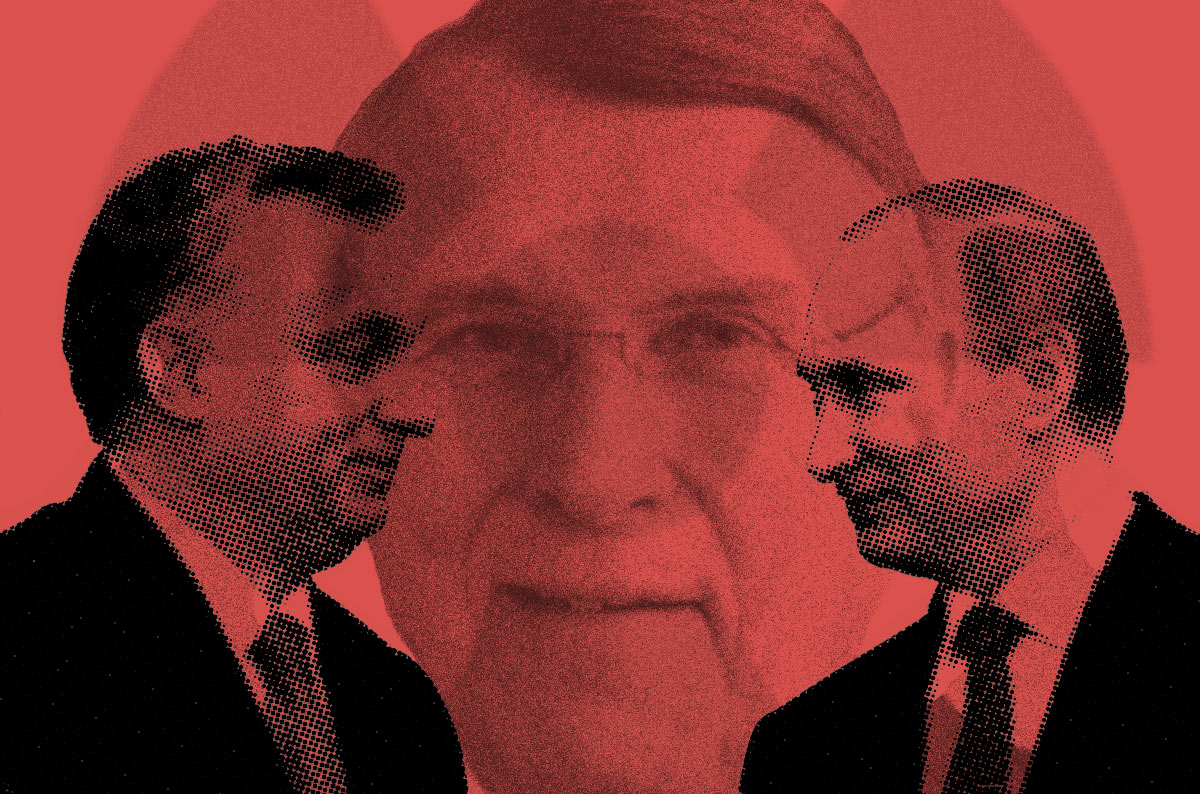
In August 2013, Hungarian Prime Minister Viktor Orban welcomed Sergey Kiriyenko, head of Russia’s state-run nuclear energy company Rosatom, in Budapest. It was not their first meeting — but it was probably their most important one. According to Hungarian governmental sources, it was then that Orban decided to contract Rosatom to expand Hungary’s Paks Nuclear Power Plant — a choice made without a public tender.
Further, the Hungarian government made the decision, which will affect the country’s financial and foreign policy for decades to come, in complete secrecy. It did not reveal any details about the Orban-Kiriyenko meeting in August 2013, either. The circumstances of the meeting, uncovered here by Direkt36, provide deeper insight into Russian-Hungarian relations and the developments in the multibillion-euro Paks expansion project financed mostly through a loan from Russia.
Direkt36 has learned from government sources that an influential German businessman, Klaus Mangold, played a key role in facilitating this meeting. Mangold, 74, has been active among Europe’s business elite for decades and is known for his exceptional relations in Russia. He has personally known Russian President Vladimir Putin since the early 1990s.
Our investigation shows that Mangold, sometimes referred to as “Mister Russland” (“Mister Russia”) in the German media, was involved in several aspects of the Paks deal. Not only did he participate in the organization of the Orban-Kiriyenko meeting but also worked to make the project palatable for EU and Western business circles. His closest contact in Hungary is Minister Janos Lazar, who also played a decisive role in the Paks project and who enjoys good relations with German business circles. Lazar, who shares the hobby of hunting with Mangold, introduced him to Orban.
Mangold did not respond to inquiries by phone and by email. Hungarian government officials did not answer our questions either and have so far revealed almost no details about Mangold’s activities — save that he works for them as a consultant. His contracts have been classified and were not even shared with the members of the Hungarian parliament’s national security committee.
“He understands the Russians”
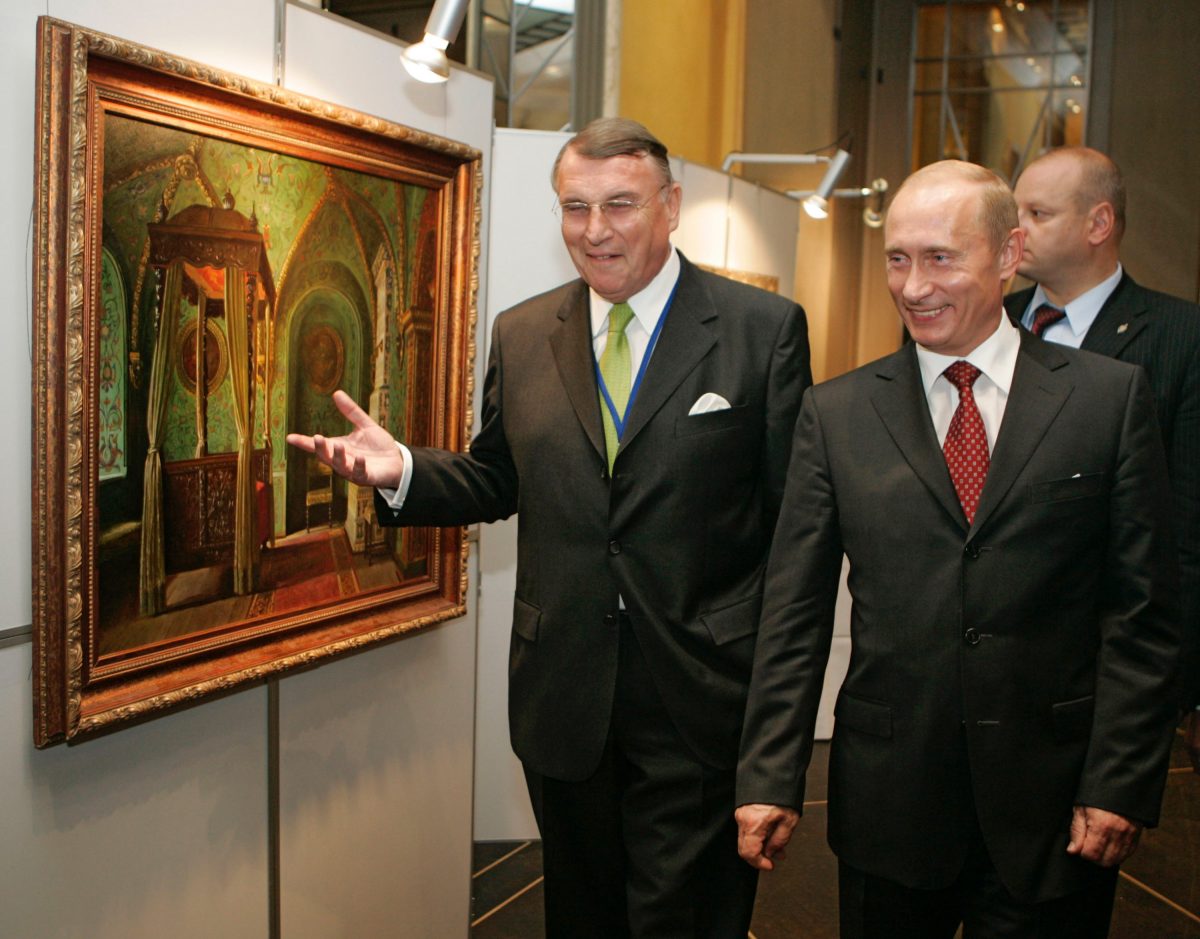
Mangold, who was born in 1943, spent most of his career among the top management of various German corporations. He helmed the German mail-order company Quelle in the early 1990s; then, between 1995 and 2003, he held executive-level positions in the German carmaker Daimler. Between 2000 and 2010, he was the president of the German Committee on Eastern European Economic Relations, an industry group that represents German business interests in Eastern Europe and Russia. Currently, he sits on the boards of several American, Austrian, French, and German companies and works as a consultant through his two firms. According to German company records, his clients included the subsidiaries of such huge corporations as the Dutch Shell, and the Russian Gazprom.
As a consultant, Mangold has put together numerous deals between members of the Russian and European business and political elites. He has reportedly facilitated the access of Russian billionaires to European investment opportunities. For example, as German media outlets reported, Mangold helped Russian steel tycoon Alexey Mordashov acquire shares of one of the world’s biggest tourist companies, the Hannover-based TUI Group. After the appointment of Mangold as chair of the company’s supervisory board, Mordashov further increased his share in the firm.
To continue our investigations, we need your support. Become a supporting member now!
A Frankfurter Allgemeine Zeitung (FAZ) story published last year described him as a person who “understands the Russians.” According to FAZ, he met Vladimir Putin in 1993 during a visit to St. Petersberg as CEO of Quelle. The two have been in touch ever since.
“I have good relations with important Russian governmental institutions,” Mangold told the newspaper.
According to FAZ, he also regularly invites the political and economic elite to a 700-acre property in Schwarzwald, Baden-Württemberg. He avoids publicity but is proud of his relations. As he told FAZ, “my relations are my know-how.” He added, “This is the basis of my businesses.”
Mangold appeared in Hungary after the fall of state socialism. The mail-order company Quelle entered the Hungarian market in 1992, and Mangold, as CEO, visited Budapest several times in 1994.
Later, as head of Daimler-Benz Interservices, he developed contacts within the first Orban government (1998-2002). He travelled to Budapest in October 1998 to announce the company’s development plans in Hungary. Daimler’s management met among others with the Hungarian defense minister, and in those meetings the Germans signaled their interest in upgrading the Hungarian military’s MiG-29 fighter jets. Due to Hungary’s looming accession to NATO (in 1999), the Russian-manufactured planes had to be made NATO-compatible.
This upgrade was partly the subject of an agreement signed in Stuttgart between Mangold and Hungarian Economy Minister Attila Chikan in April 1999. However, the Hungarian government in the end decided to purchase Swedish Gripen planes, thereby dashing Daimler’s hopes of winning a contract to upgrade Hungary’s MiG-29s. Still, the mere spectre of such a contract caused a political scandal in Hungary. In the summer of 2001, politicians from Orban’s Fidesz and the then-opposition Socialist Party accused each of having being part of alleged corruption deals to influence the Hungarian government to decide for the upgrade of MiG-29 planes. (However, Mangold’s name did not come up in the political fight.)
The Minister and the Germans
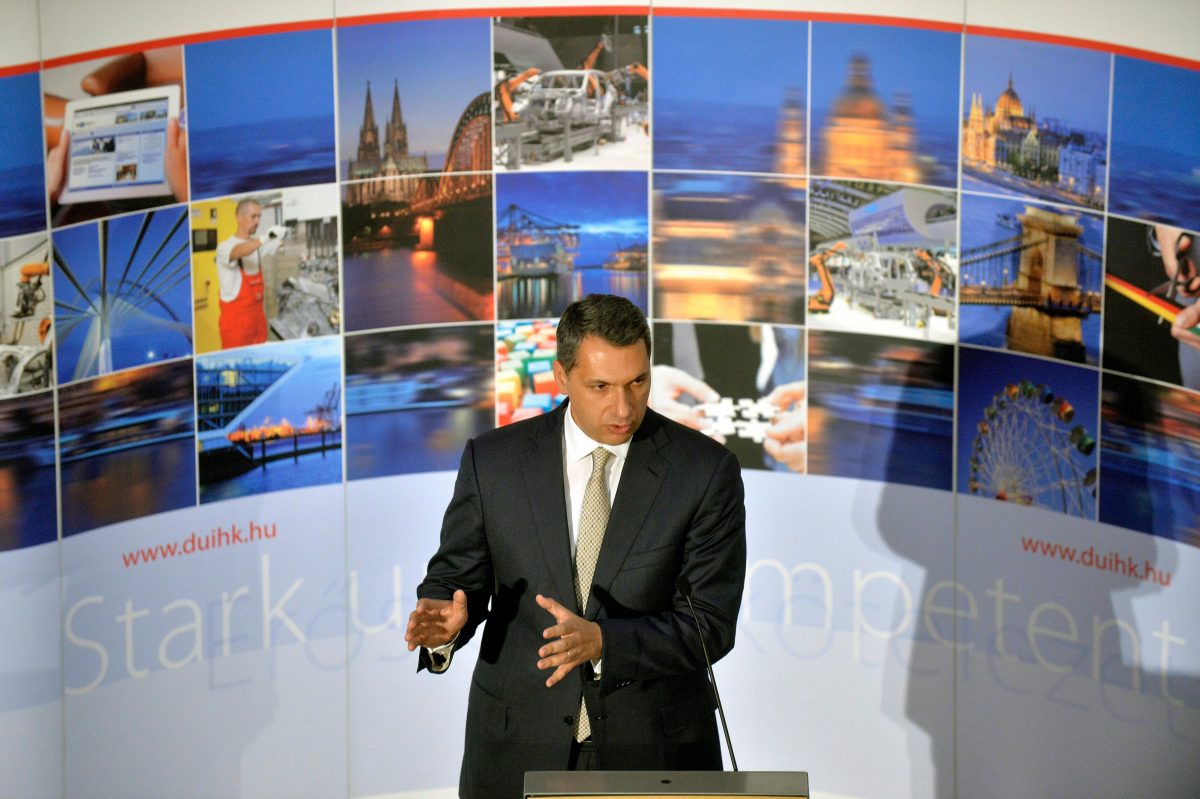
After a long pause, Mangold renewed his relationship with the Hungarian government once Orban swept back into power in 2010. In December 2012, by now in the consultancy business, Mangold met with Orban to review, as an official press statement put it, “Hungarian-German and Hungarian-Russian economic relations, in particular energy and financing issues.” Gyorgy Matolcsy, who is now the head of the central bank and then served as economy minister, and Janos Lazar, head of the Prime Minister’s Office, also participated in the meeting, a photo on the government’s site showed.
According to a government source, Janos Lazar, head of the Hungarian Prime Minister’s Office, helped set up the Mangold-Orban meeting.
“Lazar has a personal, friendly relation with Mangold,” the source said.
He noted that hunting is their common hobby and that they even took part in joint hunts.
Lazar has good contacs with the German business world. He built his network mainly through Villeroy & Boch, a German company which has become a major employer in his electoral district ever since it purchased the local Alfold Porcelain Factory in 1992. Villeroy & Boch’s Hungarian subsidiary told Direkt36 in a written statement that, as the biggest industrial company and tax payer in the area Lazar represents, it maintains good relations with the minister.
Lazar took part in normalizing the relationship between the Hungarian government and Deutsche Telekom, the German telecommunications company. Business magazine Figyelő reported in 2016 that in a lecture delivered to the members of the German-Hungarian Chamber of Commerce and Industry, he even said that the German telecommunication company is “a better ally than some of his ministerial counterparts.” Figyelő also reported previously that Lazar introduced Mangold to Orban in 2012.
Following his December 2012 meeting with Orban, Mangold started to work for the Hungarian government as a consultant. At the same time, the Hungarian government began to deepen its relations with Russia. That year, Orban gave his backing to the Russia-sponsored South Stream gas pipeline instead of its EU-supported rival, Nabucoo. At the beginning of 2013, Orban announced that the Hungarian government purchased German energy company E.ON’s Hungarian gas branch, including the subsidiary holding the gas treaty between Hungary and Russia. This made it possible for the Hungarian government to negotiate directly with Russia about the price of its gas.
With this move, the Hungarian government entered a geopolitical arena in which it had to pay special attention to the positions of big powers — in particular, Germany. Germany plays a decisive role in the EU and have strong economic relations with Russia. Russia mainly exports raw materials, such as oil and gas, to Germany, and the German machine- and carmakers see serious business opportunities in the Russian market. Besides, the almost 10-billion euros construction of Nord Stream II gas pipeline, which would transport gas from Russia under the Baltic Sea to Germany, is underway.
Former SPD Chancellor Gerhard Schröder who nurtures good relations with Mangold is the Chairman of the Board of Directors of Nord Stream II.
However, Western sanctions imposed on Russia after Putin’s 2014 annexation of Crimea have complicated the situation for Orban’s government. The Russians invaded Crimea just one and a half months after Rosatom’s contract for Paks expansion project was inked. According to a study about Russian influence in Central and East Europe published this May with the financial support of the American National Endowment for Democracy, Hungary subsequently entered a period of “seesaw politics.” The study said that the Hungarian government accepted the EU and NATO decisions, but Orban stresses that, in relation to Russia, Hungary’s economic decisions must be separated from its political ones. “For Budapest, it was still important not to become isolated because of its Russia-policy,” the study said.
Mangold’s Advice
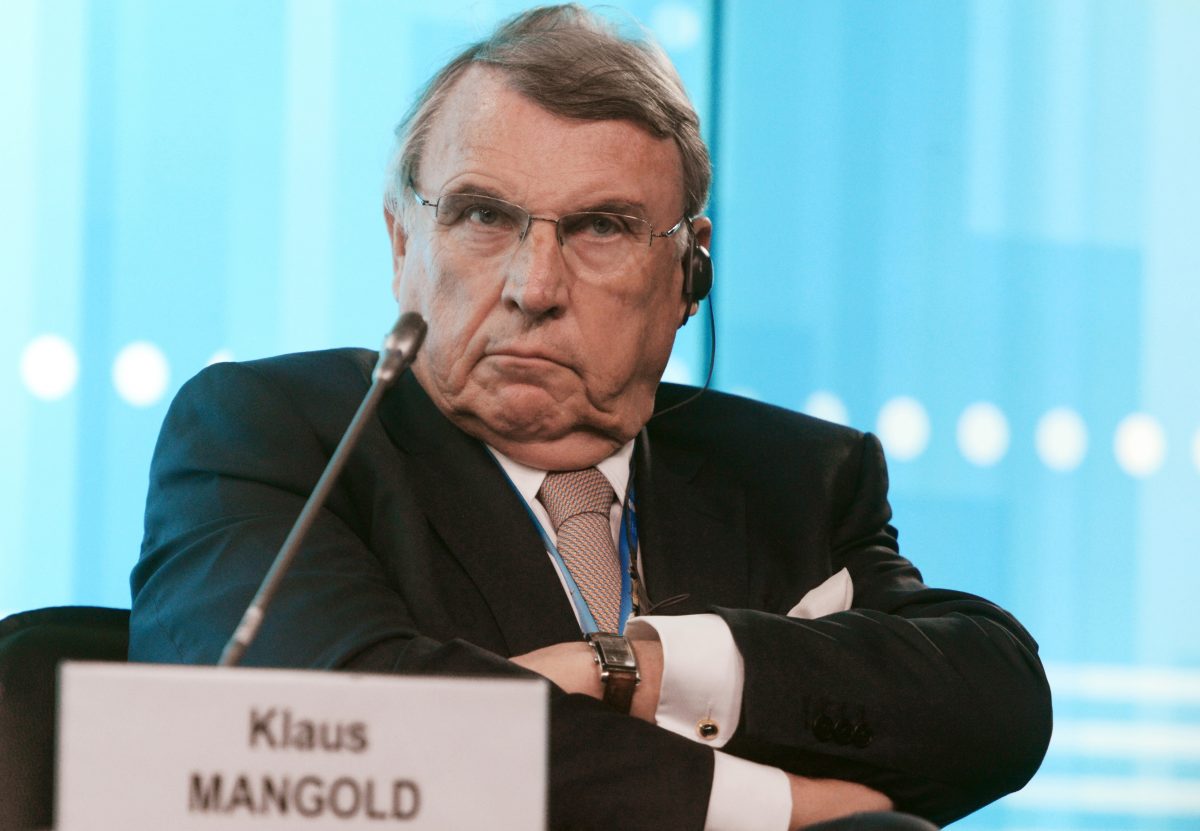
In this fraught geopolitical climate, Mangold, an influential businessman with good contacts in Russian and Western Europe, promised to be particularly useful to the Hungarian government. Lazar remained Mangold’s link to Hungary, and Mangold’s service contracts were also signed by the Lazar-led ministry.
The Prime Minister’s Office has kept Mangold’s contracts between 2013 and 2015 under wraps, so no details are known about his tasks and payments during that period. What’s known is that the government issued certificates of Mangold’s performance 75 times between July 2013 and December 2016. (Invoices can be paid based on these certificates.) In early October 2017, the Prime Minister’s Office disclosed that Mangold has remained on the government’s payroll. According to public data, Mangold’s consultancy was paid 125,000 euros for providing energy policy advice through April 2018. Another of Mangold’s companies, Mangold Dienstleistungs GmbH, has been awarded a contract for the preparation of Hungary’s e-mobility strategy worth 126,000 euros that also expires in April 2018.
The government did not share any more details about these contracts but a government source said that Mangold’s knowledge is used when various Russian-Hungarian meetings are prepared. Mangold also advises the Hungarian government in concrete cases, including the Paks expansion project. He does not appear at official meetings, though.
“He is active from the background, an éminence grise,” the source said.
The Paks expansion project is a key element of Russian-Hungarian relations, as the construction of the new reactors will shape the contours of Hungary’s economic and energy policies for decades to come. The expansion was already on the table under the previous socialist government, and in the spring of 2009, the Hungarian parliament almost unanimously approved the construction of new reactors at Paks. When Orban returned to power the next year, plans for the construction were just being laid. No contracts had been awarded yet.
If you have information about the Hungarian-Russian relations, share it with us in secure channels!
According to a former government official, Orban’s government conducted exploratory talks with American, French, and South Korean nuclear power companies. However, from the very beginning, the source added, Rosatom remained the leading candidate for the Paks expansion project. The current plant at Paks was built using Russian technology, the source explained, and awarding the expansion contract to Rosatom improved Hungary’s negotiating position with Russia on other pending issues.
The fate of the expansion was then decided at the August 2013 Orban-Kiriyenko meeting in Budapest. “Up to that point, it was open who would build Paks, but there we gave [the project] to the Russians,” said another former government official, who was told in August 2013 to stop negotiations with potential Western contractors.
According to a source with knowledge about the August 2013 meeting, Mangold played a key role in its preparation. The source did not reveal further details. An academic researcher focusing on Russia, who has contacts in the government, said that the likely scenario was that Kiriyenko informed Orban about the usual potential financial constructions. Then Orban, who usually decides about the most important questions personally, agreed, saying that “okay, let’s prepare it,” the source, who received information about the secret meeting from governmental and professional circles, told Direkt36.
Subsequently, in the fall of 2013, the Hungarian and Russian parties began to work on the details of the agreement in secrecy. The details became public in 2014, when Hungarian Minister of National Development Laszlone Nemeth and Kiriyenko signed the agreement in the presence of Orban and Putin while in Moscow.
Lobbying in Brussels
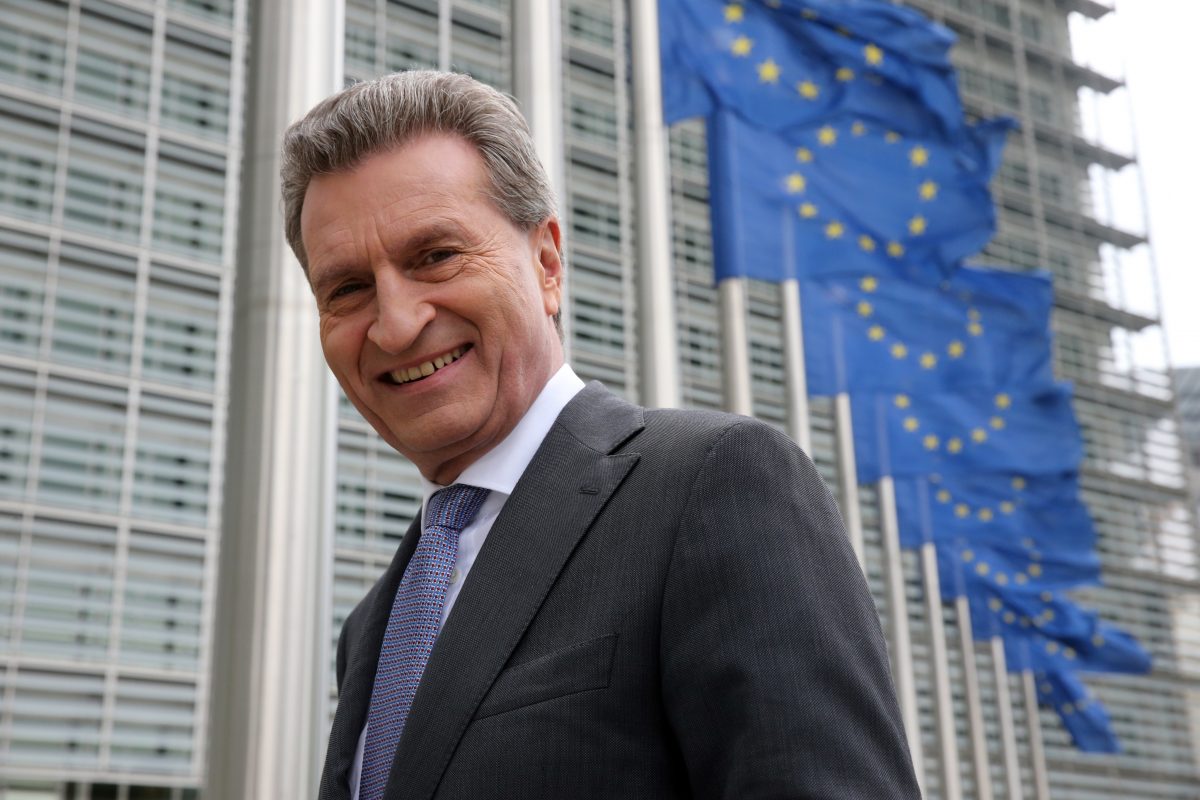
Mangold and his connections have also appeared in other phases of the Paks project. For example, the German businessman has had close ties to the Rothschild Investment Bank, which played a role in the nuclear deal. Mangold worked as a consultant for Rothschild, German company records show, and he also has a position in one of the Rothschild banks.
The now-defunct newspaper Nepszabadsag reported in January 2014 that the Rothschild Bank helped the government during the negotiations about the Paks expansion deal. Lazar neither confirmed nor denied this information.
The Rothschild bank later came to play a more visible role in the Paks project. In the fall of 2015, the European Commission, suspecting illegal state aid greased the Russian-Hungarian deal, launched an in-depth investigation into the Paks project. According to the Hungarian government, Paks’ expansion would be profitable if energy prices increase in the future. The Commission investigated whether the Paks investment was implemented according to market conditions or with state aid. It also looked into the degree to which the potential state aid would distort the Hungarian and larger European energy markets.
Several studies questioned the calculations of the Hungarian government, arguing that the new Paks plant will be profitable only with state aid. The Rothschild Group’s study, which the bank provided to the Hungarian government, concluded however that the investment would be profitable even under market conditions. The government and the bank did not respond to questions about who commissioned and paid for the study. Rothschild declined to answer questions about whether Mangold played any role in the preparation of the report.
The European Commission also objected that the Hungarian government selected Rosatom for the construction of the new reactors without a public tender. Therefore, it launched an infringement procedure against the Hungarian government in November 2015.
The Hungarian government went to great lengths to get European Commission approval for the Paks expansion project. According to a governmental official, Mangold also played a role in this process. Benedek Javor, a Hungarian Member of the European Parliament from the opposition “Dialogue” party and a staunch critic of the Paks expansion, received similar information from his sources in Brussels.
“In case of Paks, it wasn’t the typical lobbying,” he told Direkt36.
Usually, he said, officially-registered lobbyists in Brussels contact MEPs and other decision-makers — but not in this case. EU databases show that Mangold has not been a registered lobbyist, and, according to Javor, the businessman instead leveraged his personal connections to European economic and political elites.
Mangold has good relations with Gunther Oettinger, the German member of the European Commission, who is currently in charge of budget and human resources. Mangold serves as Russia’s honorary consul in Stuttgart, the capital of Baden-Württemberg, where earlier Oettinger was the province’s Prime Minister. A governmental source called him “the strongest German politician in Brussels.” Mangold’s close relationship with Oettinger came to light when Hungarian online news portal 444.hu reported that the commissioner travelled to Budapest last May by Mangold’s private plane to participate at a conference opened by Orban. The trip sparked a scandal in Brussels, as commissioners are only allowed to accept gifts in small amounts. Oettinger said that the travel costs were covered by the Hungarian government, an assertion later confirmed by Hungarian officials. In doing so, the Hungarian government finally publicized the fact that it retains Mangold as a consultant.
However, this explanation did not allay all concerns about the commissioner’s activities. Oettinger was responsible for energy issues in the European Commission when the Hungarian government first announced its deal with Rosatom. The European Commission only launched its investigation after Oettinger left the energy portfolio behind. Therefore, Oettinger likely possessed insider information that could have been valuable to the Hungarian government — though the commissioner denies he talked about Paks with Orban during his May 2016 trip to Budapest.
Euractiv, a Brussels-based online news portal, reported in January that a European Commission director-general who previously worked under Oettinger may have advised the Hungarian government on how to argue in the infringement procedure. According to the article, the director-general suggested to then Hungarian Secretary of State Balazs Sonkodi to justify the lack of a public tender using a French precedent involving “technological exclusivity” — that is, to argue that only Rosatom would be able to build the new reactors. The Prime Minister’s Office said that the meeting was initiated by the Hungarian party and that the government keeps regular contact with the directorate-general for energy issues in the Paks case. The Prime Minister’s Office denied that the Hungarian government would have changed its argumentation as described in the article. Direkt36 has approached Oettinger’s office with several questions but they did not respond to these.
Ultimately, the European Commission closed both investigations, and gave its green light to the construction of Paks.
Meat and Fly
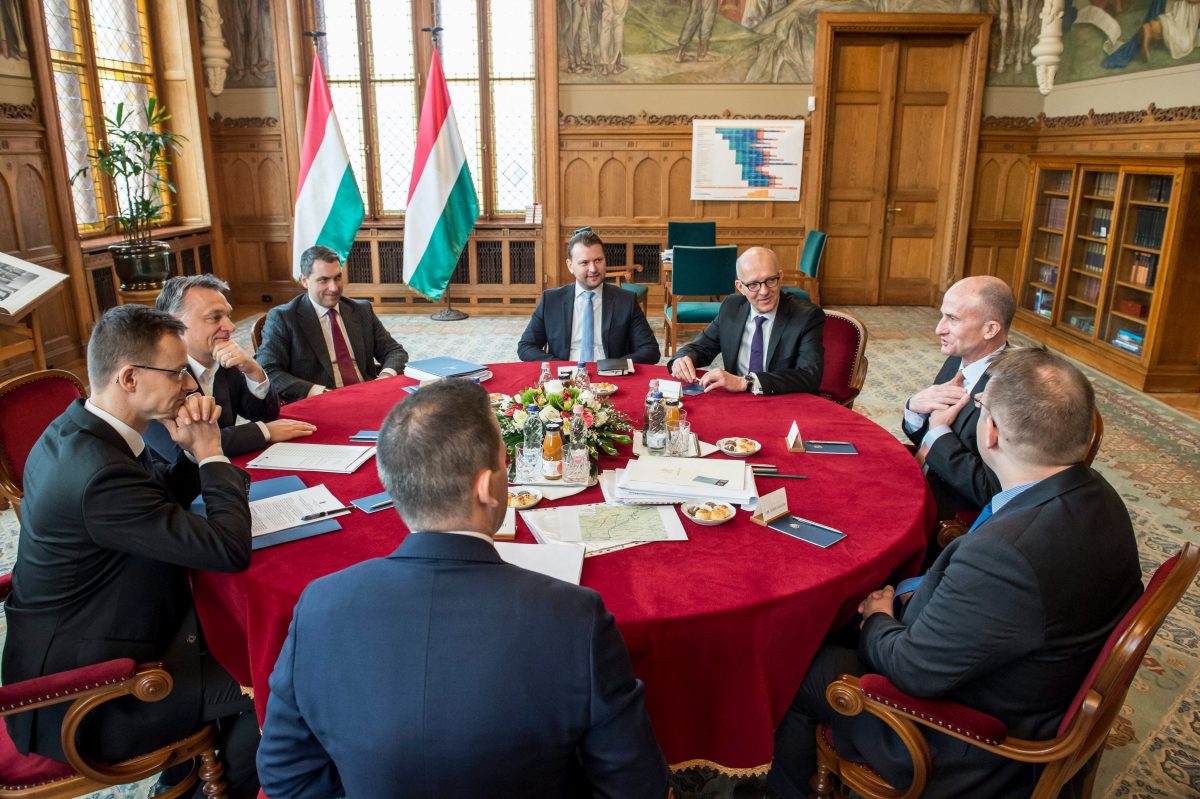
It was clear to the Orban government from the beginning that involving Western companies in the Paks project would increase its acceptance internationally. Following the launch of the infringement procedure by the European Commission, Lazar even stated in November 2015 that the EU was investigating Paks because Western companies wanted a share in the project. “Where there is meat, there are also flies,” Orban said the next day.
Then, last January, Orban held discussions with John G. Rice, the vice-president of U.S.-based General Electric (GE) about Paks expansion. The GE vice-president signaled shortly before the meeting that his company would be happy to construct turbines for the new power plant. Rosatom issued a call for bids for the turbines in June, and two applicants showed interest: a Russian company and the Hungarian subsidiary of GE, GE Hungary Kft., which submitted its bid in consortium with Alstom Power Systems.
Mangold had contacts to GE as well. Before 2015, he served on the board Grid Solutions, then a joint company of GE and Alstom. GE Hungary did not answer questions on whether they have been in contact with Mangold regarding the nuclear project. They said, however, that they expect a decision in the turbine tender by the end of the year.
Constructions of the Paks expansion project have yet to start, and no subcontractors have been selected. The involvement of U.S. and Western European companies as subcontractors would evidently mean less work for the Russians. “It had to be explored who has what expectations,” Javor said of the delicate process, which he assumes must have taken place even before the project actually starts.
“A solution satisfying Russian, German, French, EU and Hungarian interests must have been found,” Javor said. He added that Mangold was an “ideal actor” for this task.
As usual, Mangold tried to stay out of the limelight throughout the whole process — but he did not succeed completely. His role in the Paks project drew the attention of opposition politicians, and, on the initiative of LMP parliamentary leader Bernadett Szel, the Hungarian parliaments national security committee discussed his activities at its March 1, 2017 session. The session was closed. Szel told Direkt36 that the Fidesz-controlled committee did not agree to disclose Mangold’s governmental contracts to the members of the committee. Szel requested the contracts from the Prime Minister’s office but has not received any documents yet.
Another participant of the meeting said that Hungarian secret services, including those falling under the supervision of Lazar, gave briefings on Mangold’s activities. The presentation apparently did not contain many new details, as it mostly described Mangold’s network of connections. Based on the information provided at the briefing, the source concluded that Mangold is a “lobbyist… who pacified Paks.” By this, the source meant that Mangold’s role was to ensure that “the project is not considered as solely a Russian investment” by the Western circles.
Andras Petho contributed to this report. Noah Buyon contributed edits to this article.


